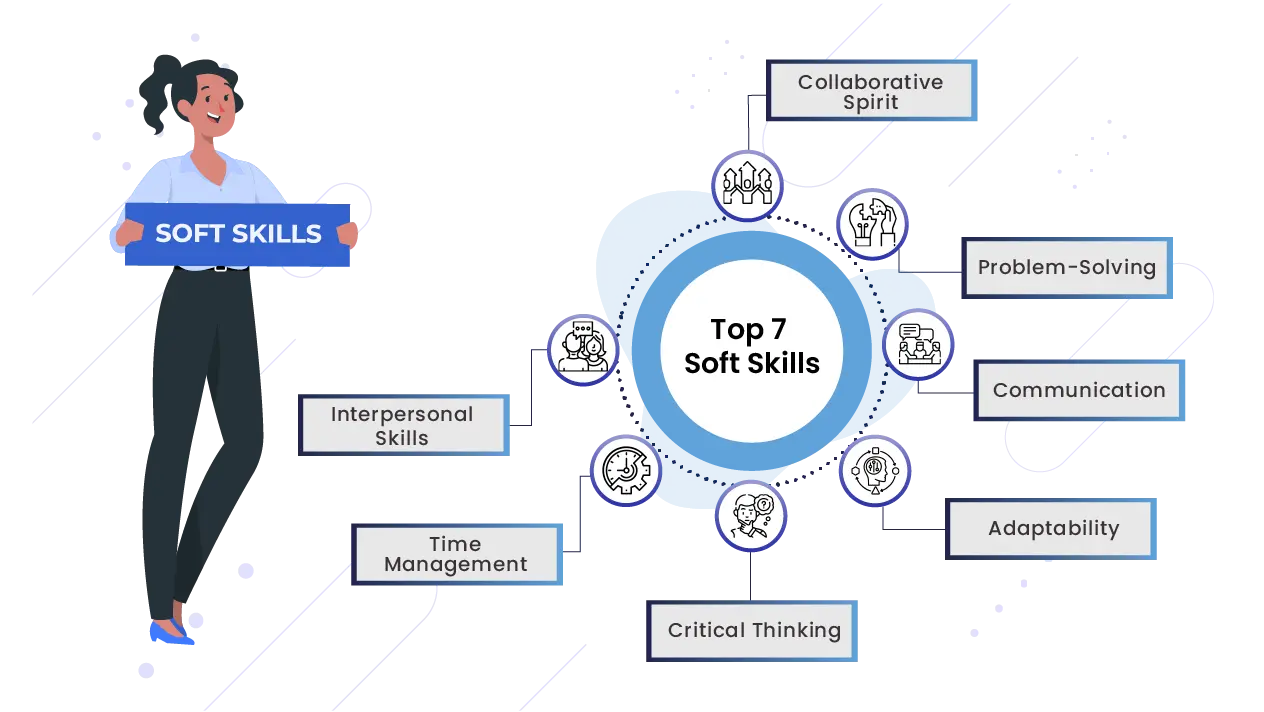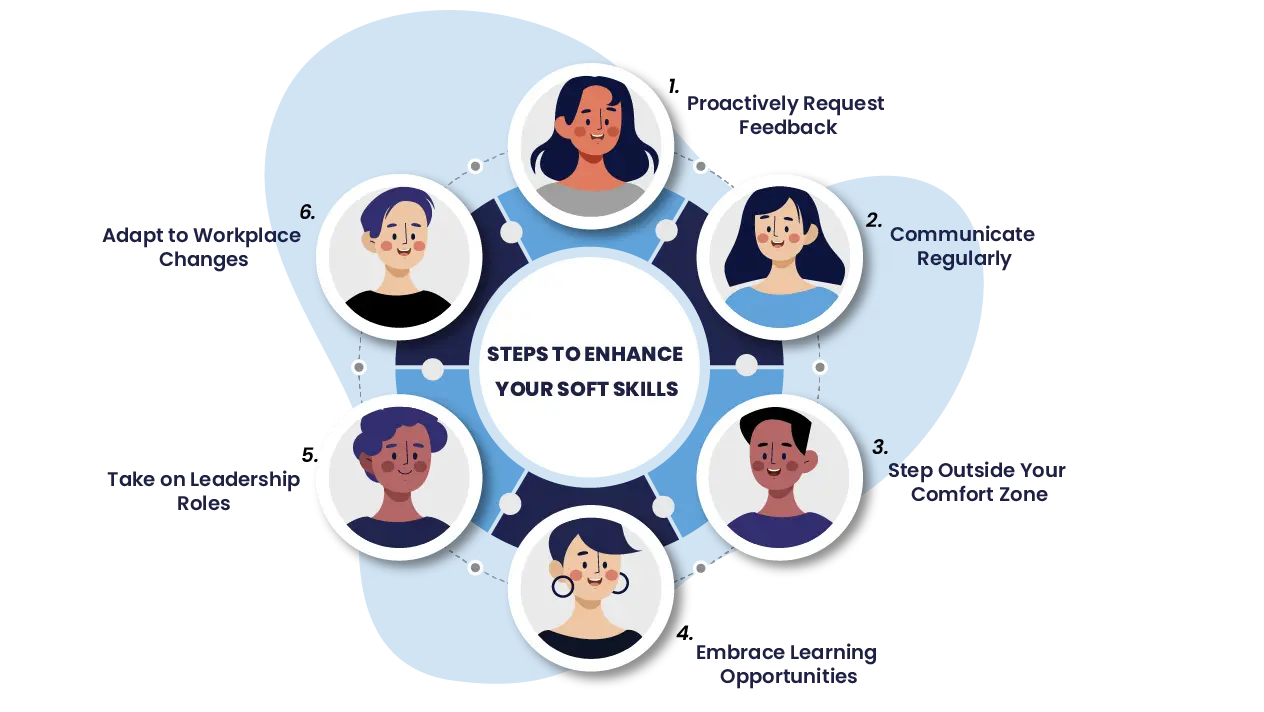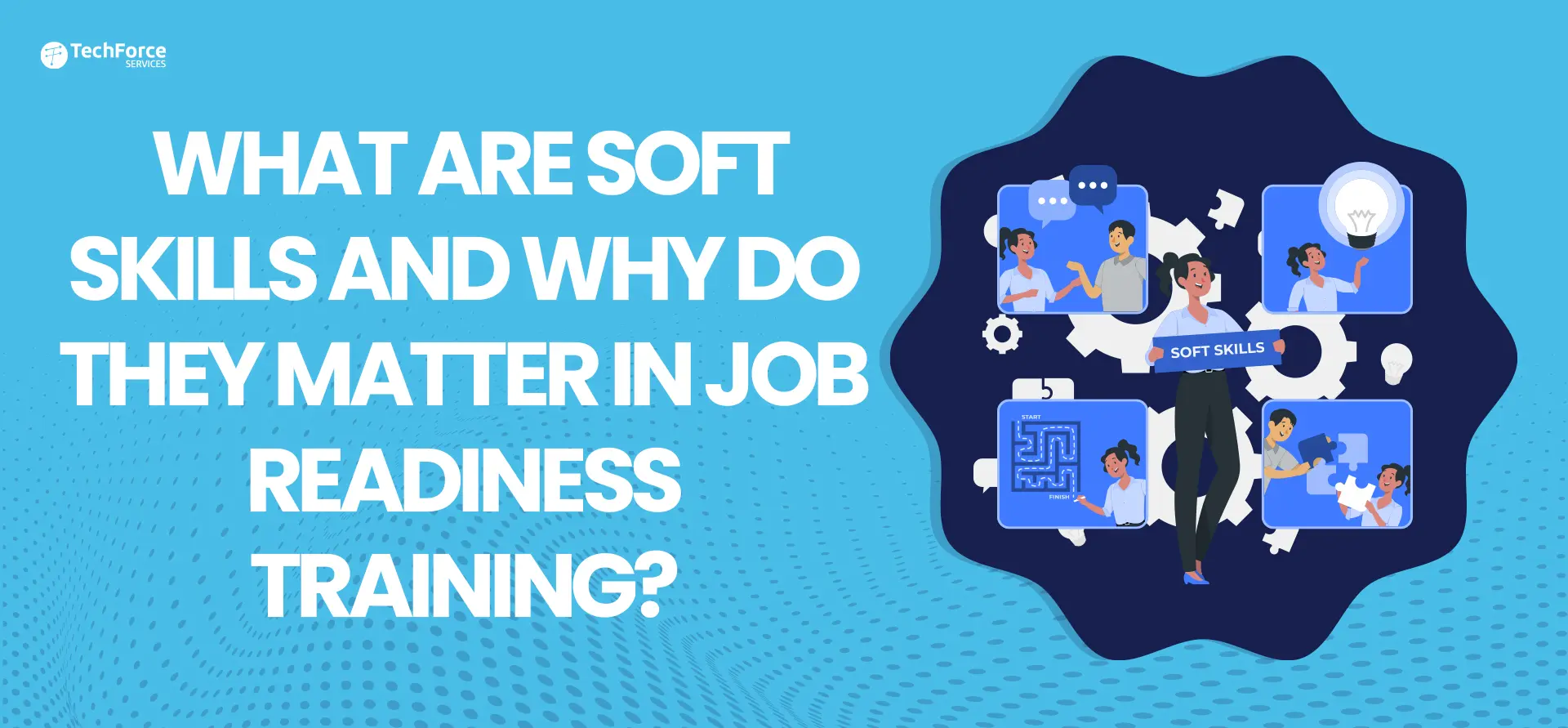In today’s competitive job market, owning technical information alone is not sufficient to assure fulfilment. Employers are increasingly spotting the value of soft skills—those interpersonal and emotional abilities that define how you engage, speak, and work with others.
Whether you are fresh out of college or seeking to enhance your profession, understanding what soft skills are and growing them can notably enhance your employability and overall performance. From communication and flexibility to leadership and teamwork, these skills in the workplace are important add-ons to a well-rounded professional skill set.
What Are Soft Skills?
Soft skills embody a fixed set of personal trends, interpersonal abilities, and behavioural attributes that enable people to deal with others efficiently. Unlike technical skills, which are measurable and precise, soft skills are more abstract and pertain to communication, emotional intelligence, problem-solving, and adaptability.
When thinking about the question of what soft skills are, think about them as skills in the workplace that give one the ability to interact with human beings and complex situations effectively.
Soft Skills vs Technical Skills: What Sets Them Apart?
The primary difference between soft skills and hard skills is their nature and application. Technical skills, frequently called hard skills, are job-specific competencies that can be teachable and measurable, including coding, data analysis, or financial modelling.
On the other hand, soft skills are transferrable skills that may be carried out across numerous roles and industries. While technical skills are vital for task completion, communication, and soft skills play a crucial position in how effectively those tasks are done in collaboration with others.
Why Are Soft Skills Essential for Career Success?
Soft talents aren’t simply complementary to technical expertise; they’re important for attaining success in the workplace. Here’s why:
Boosts Your Employability
Employers are searching for candidates who can exhibit well-rounded skill sets, which include technical and soft skills and different kinds of skills for resume enhancement. This balance makes you an extra appealing candidate throughout the hiring process.
We offer career assistance and programs for individuals that focus on both technical and soft skills.
Enhances Job Performance
Good communication and soft skills, consisting of time management and adaptability, make contributions to improve efficiency and productivity, leading to better job satisfaction.
Fosters Positive Work Relationships
By developing effective interpersonal skills, you may construct stronger connections with colleagues, promoting a more healthy and collaborative work environment.
Demonstrates Leadership Potential
Those with robust soft skills often show management traits, such as decision-making and problem-solving, making them perfect candidates for management roles.
Applying Soft Skills Across Various Fields
| Field | Essential Soft Skills | Typical Roles |
| Business & Management | Communication, Leadership, Time Management | Includes roles like managers, consultants, and analysts. These positions require strategic planning, collaboration, and leadership abilities. |
| Healthcare & Social Sciences | Empathy, Communication, Adaptability | Common roles include nurses, social workers, and therapists. Empathy and adaptability are crucial for patient care and communication. |
| Education & Teaching | Communication, Adaptability, Problem Solving | Roles like teachers, trainers, and coordinators. Effective communication and problem-solving skills are key to knowledge delivery and student engagement. |
| Technology & Engineering | Critical Thinking, Teamwork, Communication | Includes developers, engineers, and IT specialists. Collaboration and critical thinking are vital for solving technical challenges. |
Top 7 Soft Skills for Career Readiness

1. Collaborative Spirit
The capability to collaborate correctly with others to gain shared goals. Teamwork includes actively listening, respecting extraordinary viewpoints, and contributing meaningfully to institutional efforts. Employers highly value people who can work properly within the team, presenting guidance, encouragement, and optimistic comments to gain commonplace goals.
2. Problem-Solving
This talent entails analysing conditions significantly and growing realistic solutions correctly. Effective problem-solving calls for creativity, critical thinking, and the capacity to stay calm under pressure. Whether you are in a technical or managerial position, the potential to resolve challenges successfully is crucial for workplace fulfilment.
3. Communication
Clear and effective communication is a cornerstone of soft skills. It encompasses each verbal and written verbal exchange, in addition to active listening. Being capable of conveying thoughts, offering feedback, and recognising instructions as they should be is important in nearly every professional placement.
4. Adaptability
The potential to regulate work environments and embrace new ideas is vital in today’s dynamic workplace. Adaptability demonstrates resilience and a willingness to learn from numerous reports, making it a valuable ability for growth and innovation.
5. Critical Thinking
This talent includes comparing records objectively, identifying patterns, and making informed selections. Critical thinking is essential for reading complex issues, growing strategies, and improving standard decision-making competencies.
6. Time Management
Managing time efficiently is about prioritising tasks, setting practical goals, and balancing diverse responsibilities. Good time management leads to expanded productiveness, reduced strain, and better work-life balance.
7. Interpersonal Skills
Building and preserving high-quality relationships in the workplace is prime to collaboration and networking. This talent consists of empathy, emotional intelligence, negotiation, and conflict resolution—making you a valuable team member and leader.
How to Identify and Improve Your Soft Skills
Recognising the need for improvement in your skill set is the first step toward growth. Here are a few signs that you may need to enhance your list of soft skills:
- Difficulty taking part with colleagues or resolving conflicts.
- Struggling to evolve to administrative centre adjustments.
- Receiving remarks about communication or teamwork issues.
Steps to Enhance Your Soft Skills

1. Proactively Request Feedback: Rather than waiting for feedback, try to find it actively to improve your communication and list of soft skills.
2. Communicate Regularly: Consistent and clear communication facilitates to build rapport and establish credibility.
3. Step Outside Your Comfort Zone: Taking on new demanding situations promotes growth and hones various competencies inside the workplace.
4. Embrace Learning Opportunities: Continuously in search of knowledge enables refine both technical and soft skills. IT soft skills training through workshops or mentorship packages can enhance your competencies.
(Become a mentor and make a positive contribution to the lives of aspiring professionals by taking part in their learning process!)
5. Take on Leadership Roles: Volunteering for management obligations can enhance your self-belief and decision-making capabilities, which might be important soft skills for resume building.
6. Adapt to Workplace Changes: Flexibility and openness to new ideas are important for long-term success.
Conclusion
Soft skills are a vital part of one’s professional skill set, enhancing both employability and workplace effectiveness. The difference between soft skills and hard skills lies in their application and measurement, but both are essential to career success.
Improving your soft skills through deliberate practice, feedback, and embracing new challenges can significantly impact your career readiness and overall success. Whether you’re in IT or seeking growth in other fields, prioritising these transferrable skills will undoubtedly benefit your professional journey.
Understanding how to measure soft skills and continuously improve them will keep you on the path to success. For more insights into career growth and skill development, consider exploring additional resources and blogs!











